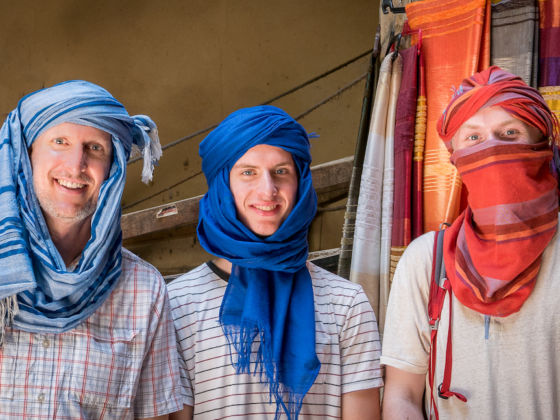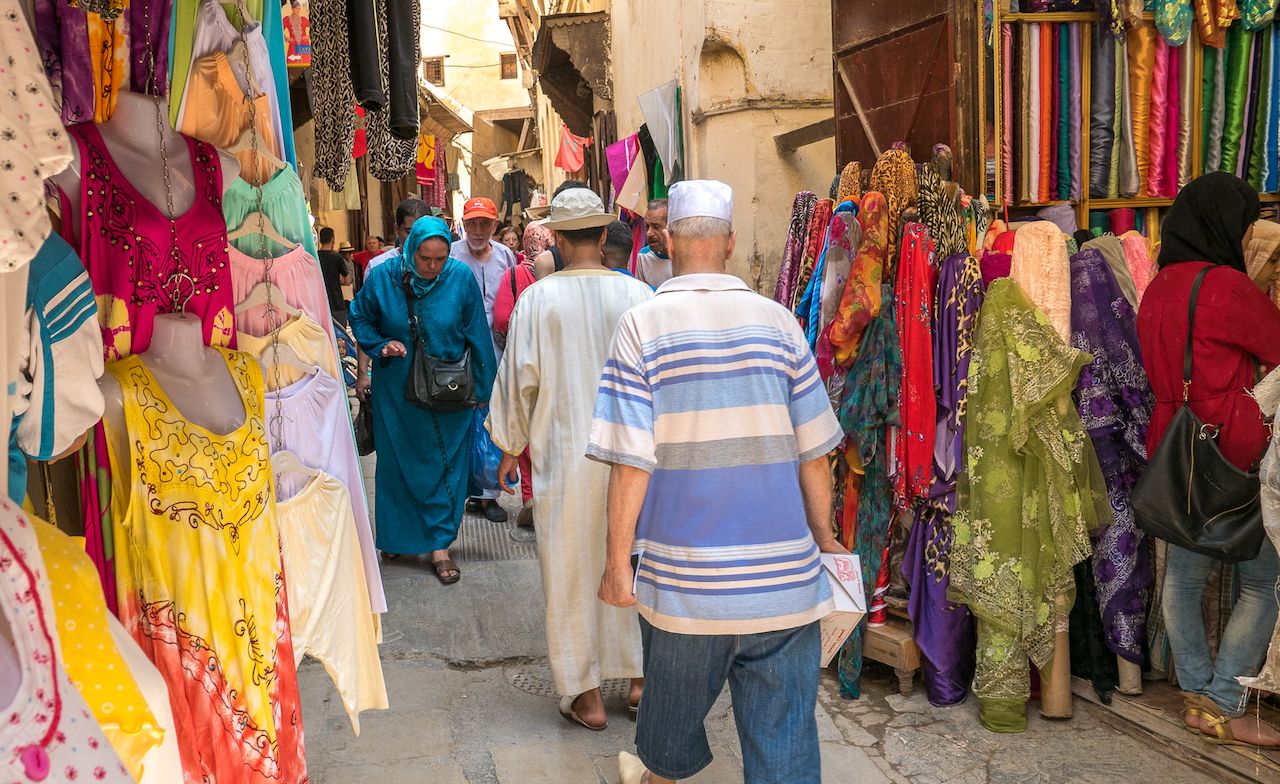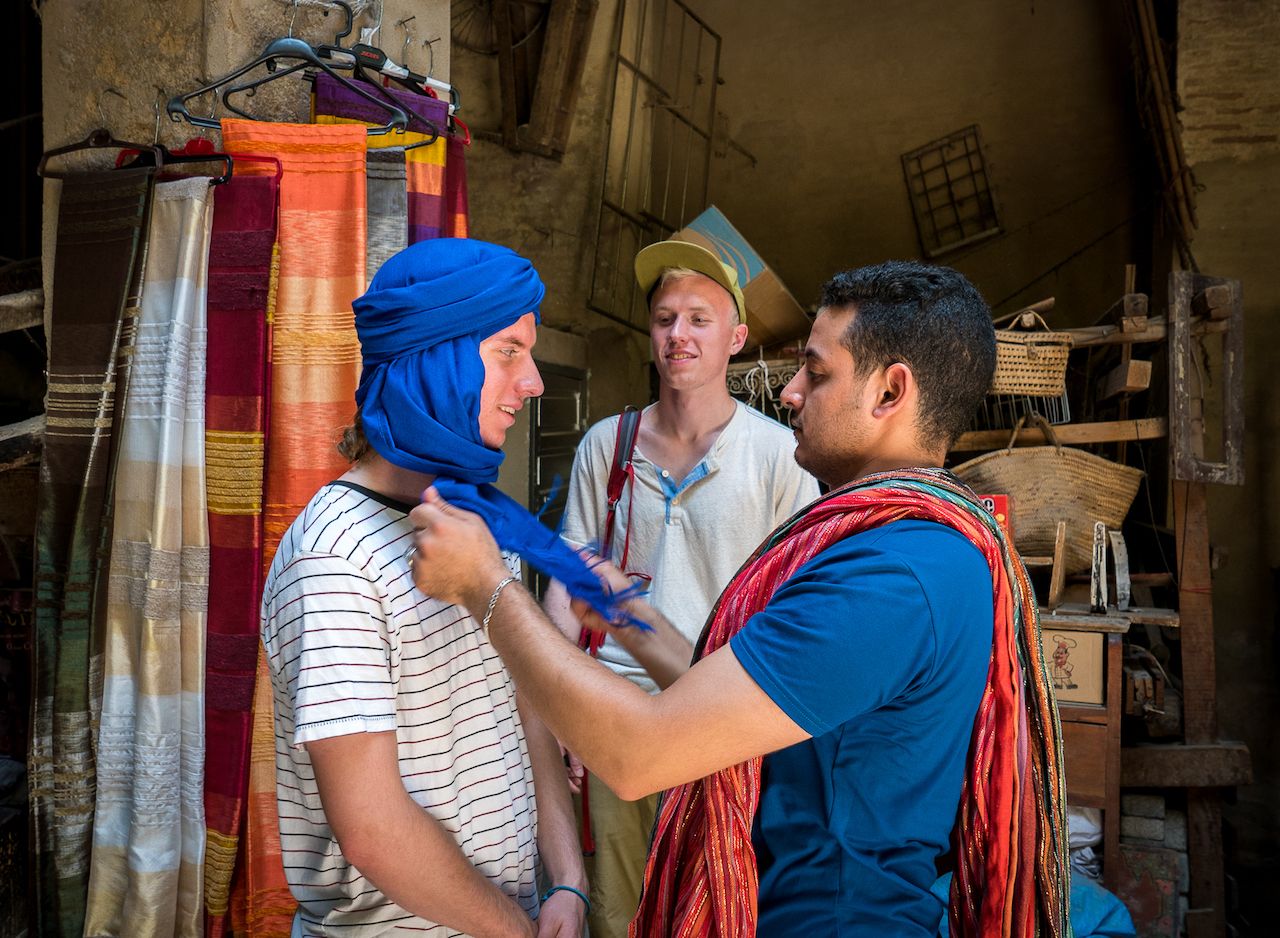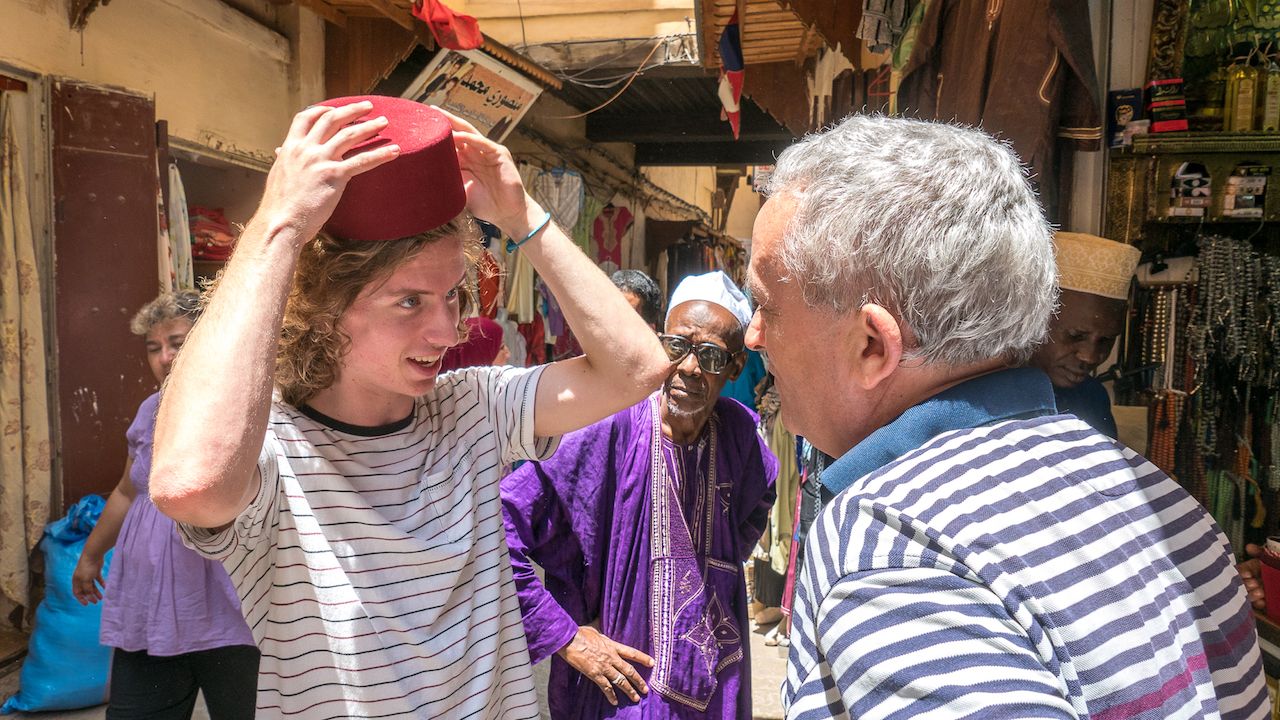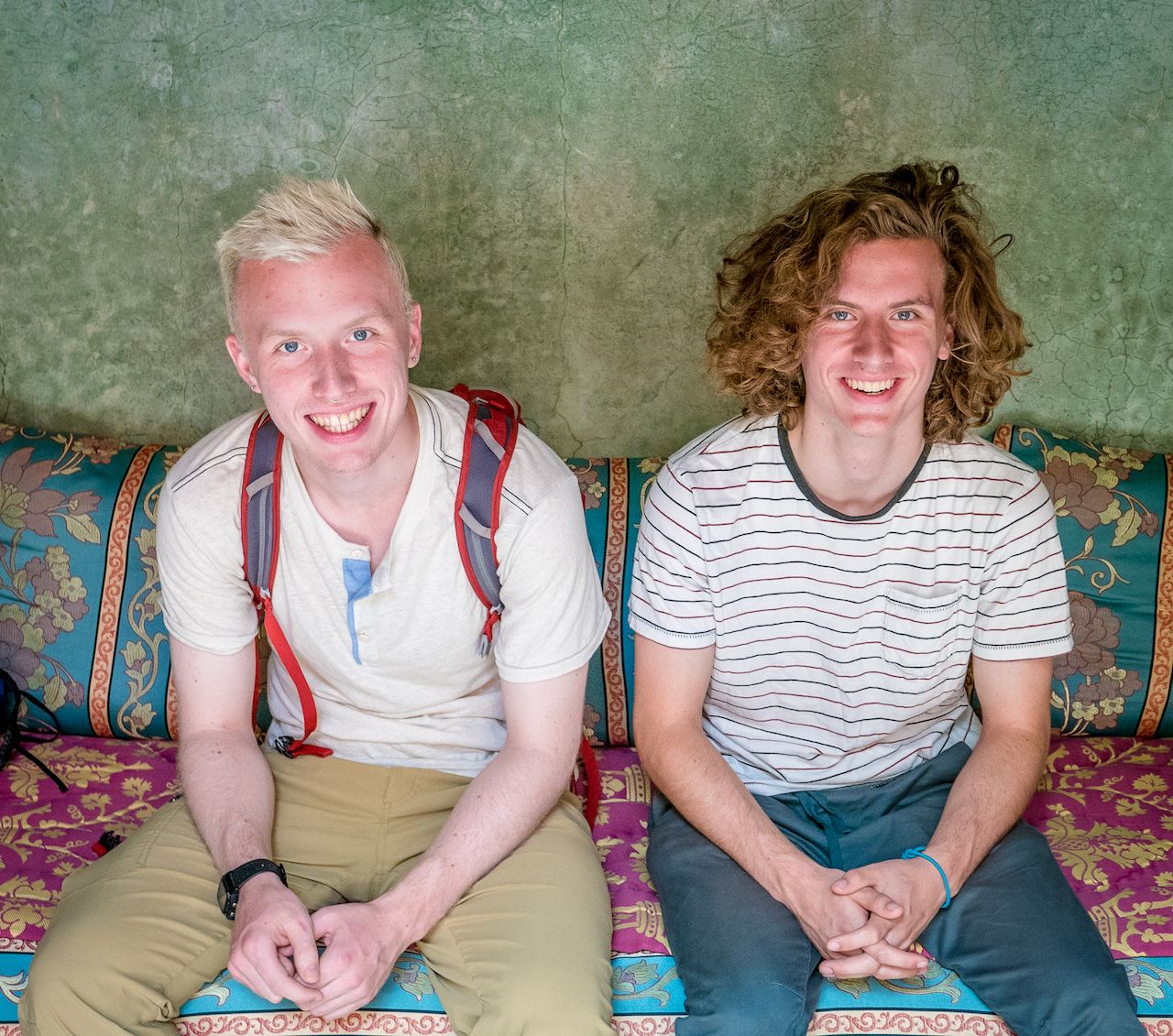Sometimes, it takes going thousands of miles from home to help you better appreciate both your home and those who live there. In Morocco, the most unfamiliar of places, I came to treasure anew those who had become so familiar that I had ceased to see them.
My two sons — Connor (18) and Sumner (21) — and I arrived in Morocco after passing through Dubai and Egypt. In Egypt, Sumner had picked up a stomach bug. By our second evening in Morocco, however, he was feeling better. The return to health after the scariness of being sick on a trip made him jubilant and talkative. That evening, over a dinner of chicken tagine, I learned from my straight-laced older son what happens at heavy metal concerts and what it feels like to dance in the “circle of death,” subjects about which I’d been blissfully ignorant.
